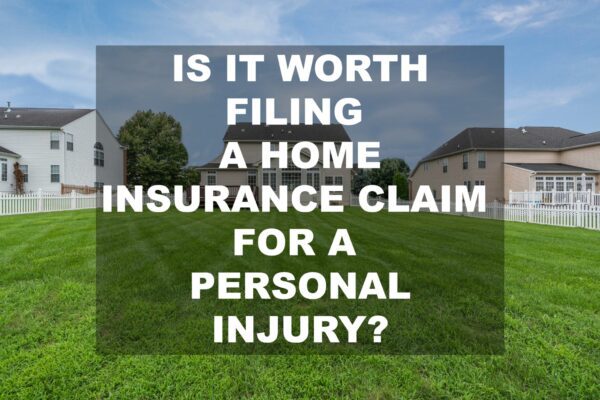
Homeowners insurance policies provide protection for homeowners in the event that a home insurance claim is brought against them by another party. The policy also provides protection for property owners and mortgage holders should the house sustain damage from a natural catastrophe such as a flood, fire, or storm. Typically, in the case of the latter, homeowners are often confronted with a dilemma before submitting a claim. Is the damage serious enough to file a home insurance claim? Otherwise, a homeowner could see his or her rates increase or even have their policy canceled by their insurance company.
On the other hand, as to the former, in Maine, property owners can be held accountable for premises liability if they fail to keep their property safe for visitors and guests. It can happen. During a home delivery, the driver stumbles and falls on a crumbling sidewalk. Your daughter’s best friend tumbles off the trampoline and breaks her arm. People can get injured on your property. In either instance, a home insurance claim can be filed against a homeowner for personal injury for failing to keep the property reasonably safe. Every property owner must abide by certain legally enforced expectations that their property is free of potentially hazardous conditions that can cause injury to visitors and guests.
Some of the Most Common Home Insurance Claims are for Personal Injuries
Though homeowners rarely file claims, one of the most common is for some type of personal injury. Accidents in the home and on your property do happen, and more often than thought. But is it worth seeking compensation if you or a loved one is injured in someone else’s home or on their property?
Millions visit emergency rooms annually due to injuries suffered on residential properties. Slip and fall injuries and man’s best friend account for a high number of those residential injuries. Dog bites alone account for close to 350,000!
If the property owner’s negligence caused the personal injury, you have every right to seek compensation via the homeowners’ insurance. However, regardless of the causes for a personal injury claim, two basic issues must be proven first—defendant liability and the extent and nature of your damages. You would be well-advised to seek the legal counsel of a personal injury lawyer to discuss the likelihood of a claim.
To aid in your decision-making, here is a shortlist of the more common residential accidents and injuries that result in a home insurance claim for personal injury:
- Slip and fall accidents: One of the most common personal injury cases for premises liability claims. A slip and fall accident can occur for a variety of reasons—cracked steps, slippery surfaces, uneven walkways, loose floorboards. Poor maintenance combined with poor lighting can result in a serious accident.
- Dog bites: Man’s best friend is on a short leash. Over a third of all homeowner insurance claims are for personal injuries sustained from dog bites and dog-related injuries. That’s because dogs not only bite but scratch and lacerate. Larger breeds can unintentionally knock down older guests or young children, causing injury.
- Falling trees: No matter the season, stormy weather can wreak havoc on anyone’s property. Wind storms, ice or wet snow, can uproot trees or cause branches to snap and fall—not only on your house but your neighbor’s house or car. It is the responsibility of the homeowner to maintain his or her property, and this includes overgrown trees.
- Trampolines: Bouncing on a trampoline may be a lot of fun and good exercise. Yet, enticing as that is, all homeowners should be aware of the risks to injury that trampolines pose. People collide in midair, improperly land or jump off, or fall into the trampoline springs or framing. Homeowners must take reasonable steps to safely secure trampolines to avoid a homeowner claim.
- Pools: It is a homeowner’s responsibility to ensure that the entire area around the pool is safe. The pool area should be fenced in and the decking, steps, and diving board should not be slippery. No one should be in the pool for a period of time after chemicals have been added, either.
Let Us Help You Get More
Whether a guest, an infrequent visitor, or simply on a business call, it is the responsibility of the homeowner to provide a safe environment when entering the property, free of hazards and dangerous conditions that could injure someone. If you’ve been hurt by homeowner negligence and are weighing whether to seek monetary damages for the injuries you have suffered, contact the law offices of Hardy, Wolf & Downing for a free consultation.

